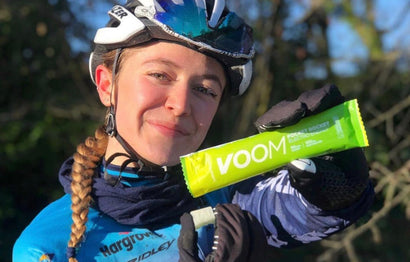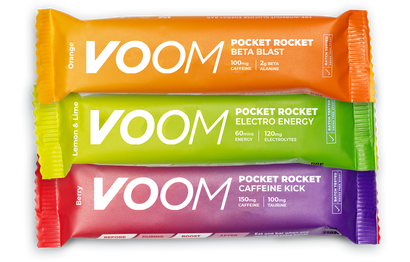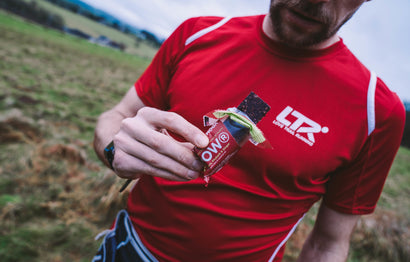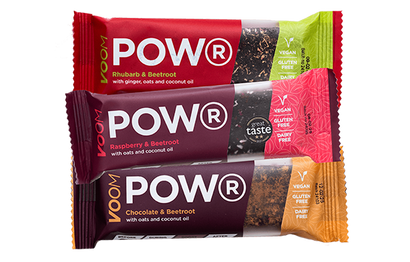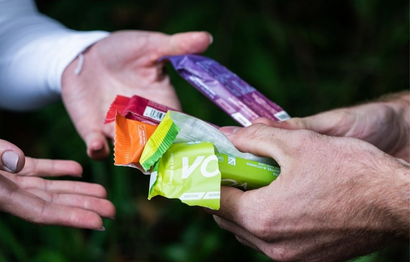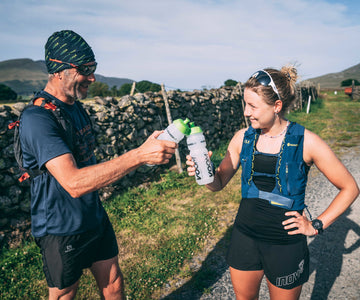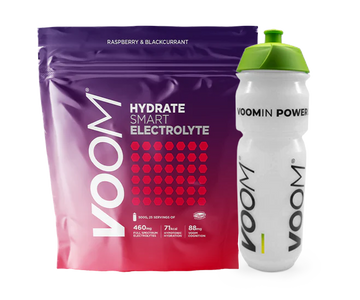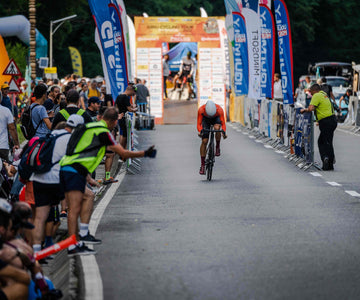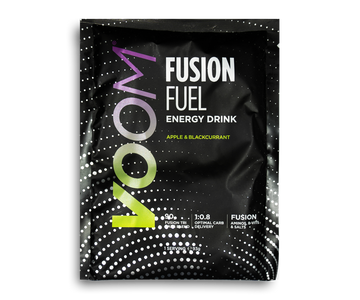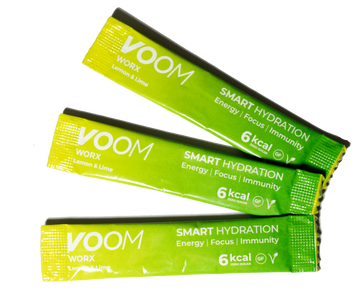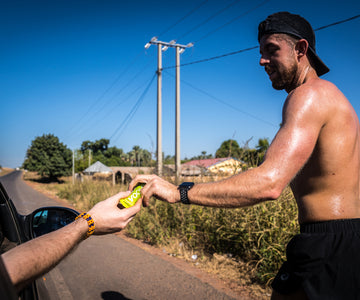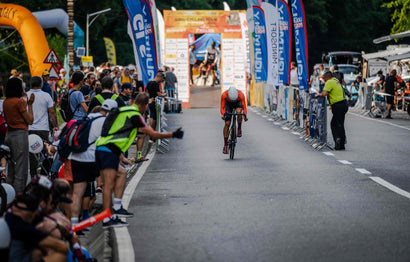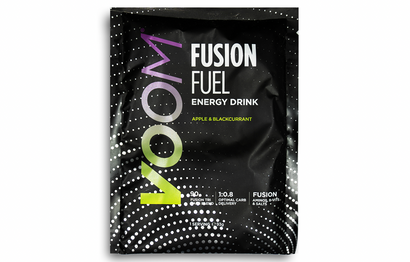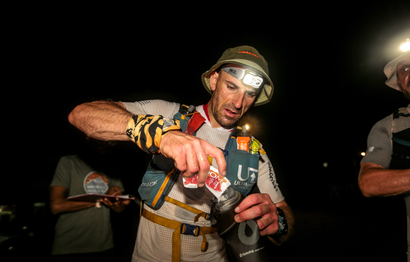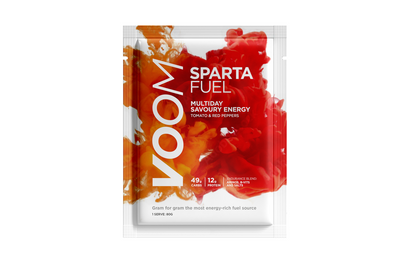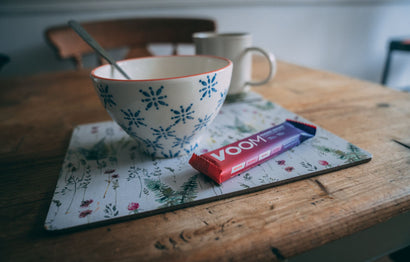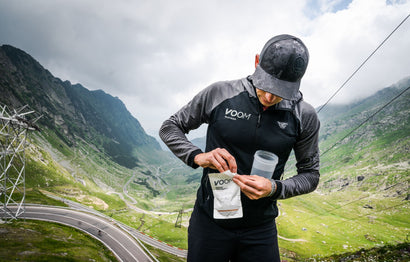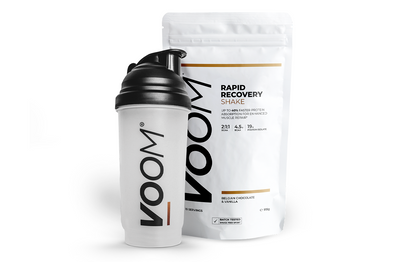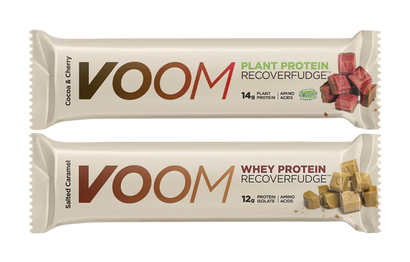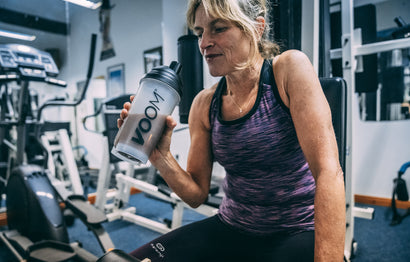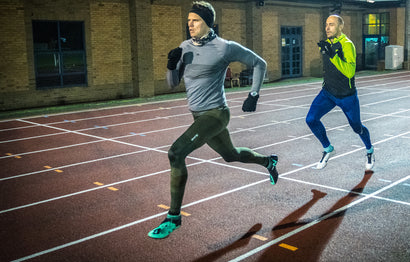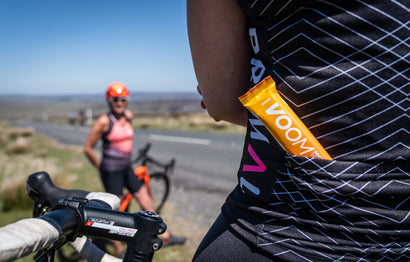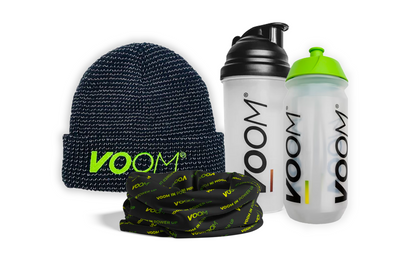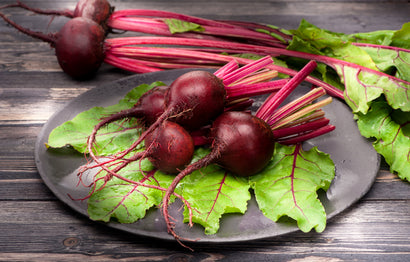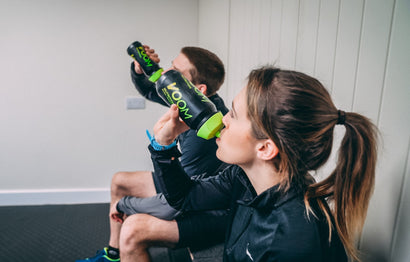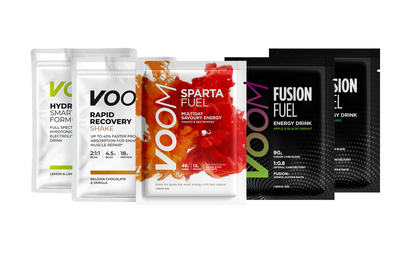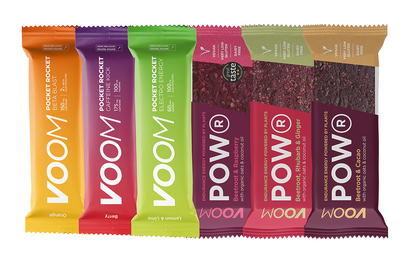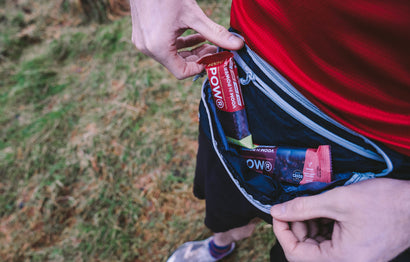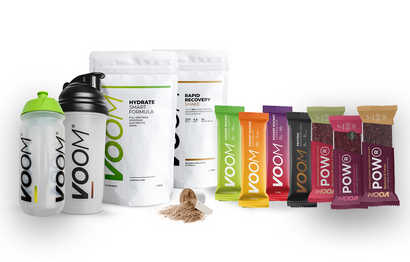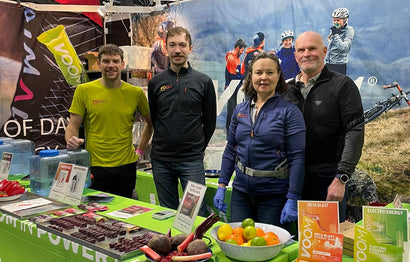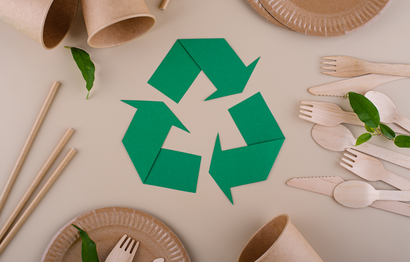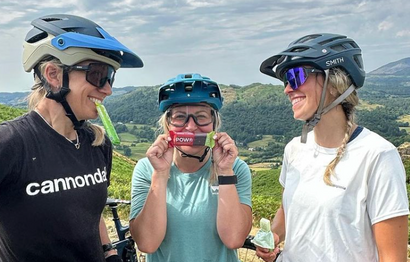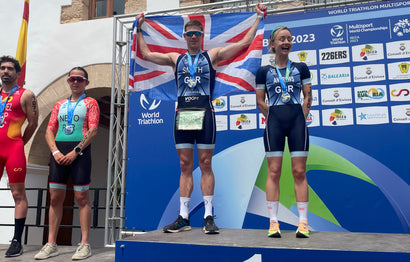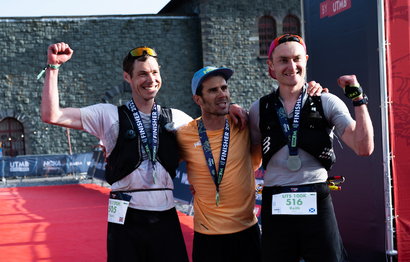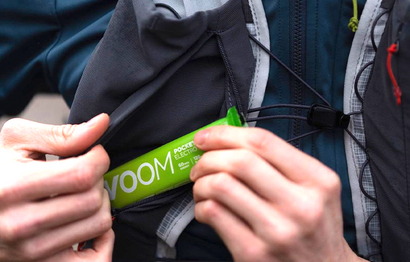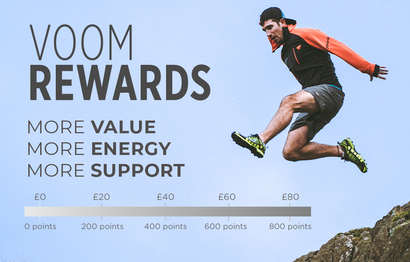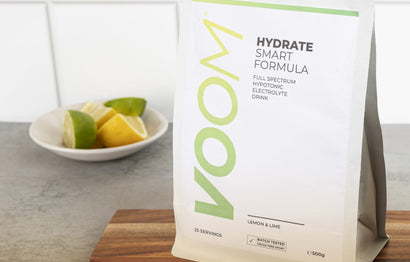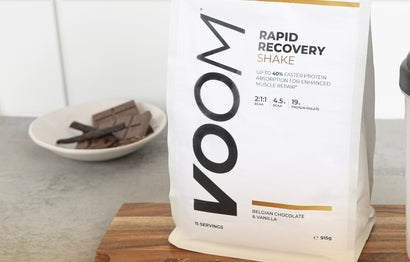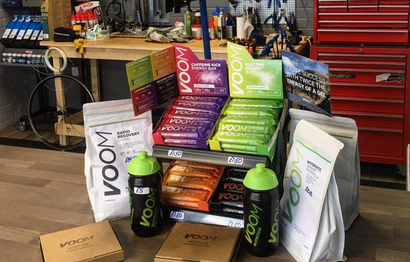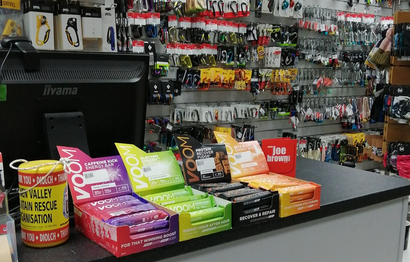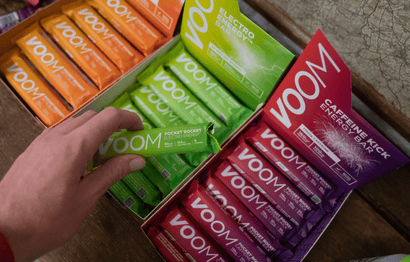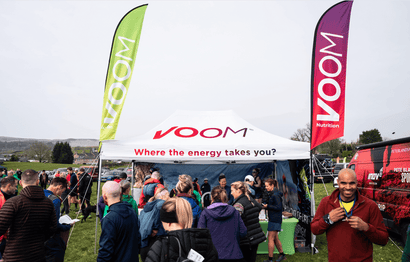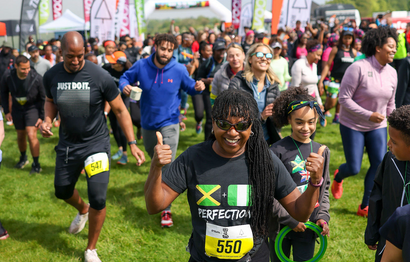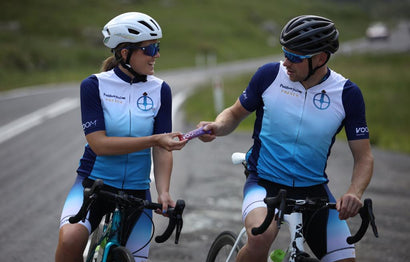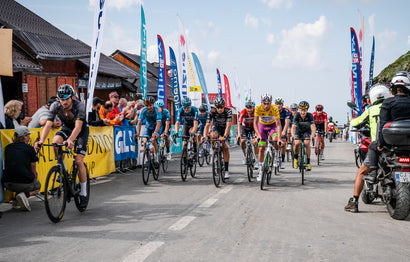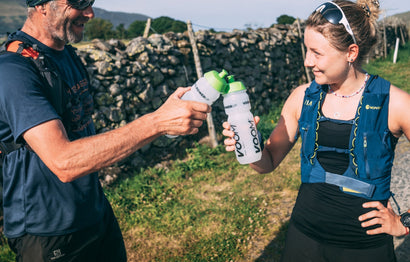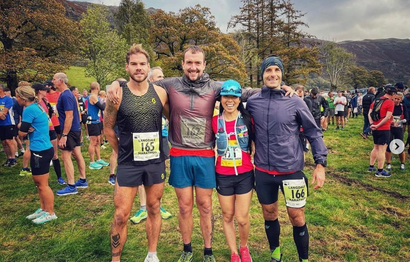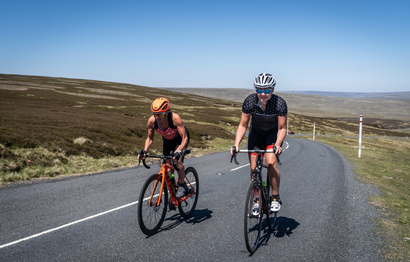In this guide we look at the best balance of macronutrients for marathon training and how many carbs are needed for running, as well as what to eat before bed and the importance of a runner’s breakfast.
In this section of our marathon diet guide we offer more tips on getting the best nutrition for marathon running & training. First is a summary of some of the best advice for marathon fueling before a more in depth look at some marathon fueling tips.
Four Nutrition Tips for Marathon Training
1) Stay on top of vitamin & mineral intake
Alongside your training getting enough vits & minerals will help your running. Ideally this will be through regularly eating a nice variety of fruit & vegetables, especially leafy green veg, but may include multivitamin supplements to support marathon training.
2) Don’t forget to hydrate
Hydrating properly can keep your body in top shape to perform better in your training and race. Sometimes water is not enough and an electrolyte drink is needed to hydrate more quickly either in warmer conditions or if you’re already dehydrated. Hydration for running is crucial - learn more below.
3) Time your food intake
Heavier training days require more energy, usually met in the form of carbohydrates, which are essential before training but also aid recovery by replenishing glycogen stores, whilst protein is important post-workout for muscular repair.
4) Fuel your long run
In order to build up your long runs, and enjoy the process, you’ll need to maximise glycogen stores before and maintain them during longer runs. The long run is also a great time to practice the nutrition strategy you’ll use in your event and make sure you’re confident on how to fuel during a marathon. What happens if you don't eat enough during a marathon or long run certainly isn't pleasant and you'll be exhausted before the finish line if you don't take on enough fuel.

Vitamins, Minerals and Supplements for Marathon Running
Vitamins & Minerals are known to be nutritionally important for maintaining health and even more so for runners whose bodies will be facing the increased demands of following a marathon training plan. Understanding how vitamins work in the body may just be the push you need to improve your diet.
Vitamin A plays a role in organ health and immunity so getting enough can help keep you on track with your running. Including foods such as salmon, dairy, carrots, broccoli and other vegetables into your diet for marathon training will boost Vitamin A intake.

Vitamin C is widely reported in maintaining immune health but it also aids healing by helping the body produce collagen and assisting iron absorption. Boost your Vitamin C intake by eating red and green peppers, broccoli, sprouts, strawberries and citrus fruits/juices.
Vitamin D is prominent in bone health as it helps the body absorb calcium and while you’re more likely to become D Vit deficient during the winter (due to reduced sunlight) it can be difficult to acquire in your diet. Fortified cereals are one option and Vit D is also found in egg yolks and fatty fish, but a multivitamin may bolster your intake.
B-Vitamins, and notably Vitamin B-12, are important in energy metabolism, nerve and cellular health and red blood cell production so obviously getting enough can help when training for a marathon. You can learn more about the B-Vitamin complex here and aim to get more in your diet from meat, fish, dairy, poultry and leafy greens.

Magnesium, again linked to bone health, can help maintain normal body functions such as within the nervous system and muscles. Brown rice or wholegrains, leafy green veggies such as spinach and nuts, especially Brazil nuts are common sources of Magnesium.
The role of calcium in bone and dental health is widely known, but calcium is also important in blood clotting and muscular contractions including in cardiac muscle. Milk and dairy products are a major calcium source in a balanced diet, as well as spinach, kale and fortified milk alternatives such as soy or almond milk.

Iron is another crucial mineral which is used in haemoglobin, the oxygen carrying molecule in red blood cells so avoiding iron deficiency can help your running performance. Great sources of iron include meat, fish, nuts, green veggies, lentils and beans, although plant derived iron is less bioavailable therefore vegetarians and vegans should aim to consume more total iron.
Nitrates are also helpful for general health and athletics performance by improving blood flow to working muscles. This occurs as nitrates boost levels of Nitric Oxide which helps vasodilate capillaries. VOOM's Raspberry and Beetroot bar offers a nice hit of dietary nitrates in a tasty snack bar, and you can read more about the benefits of nitrates here.

For a more in depth look at staying healthy during successful marathon training check out our previous article with Angela White, the Running Granny! With the best will in the world your training diet might not contain quite enough of all the vitamins and minerals needed, at the time you need them, especially if you’re following a seasonal diet. Whilst marathon training supplements, or a daily multivitamin, may help ensure you’re getting enough of the key vitamins and minerals, you should still aim for a well balanced diet to supplement your marathon preparation.
Hydration & marathon training
If you tend to be properly hydrated day-to-day then congratulations, you’re in the minority! We have previously discussed hydration for running in more detail and hydration is still a marathon essential. It is widely known that dehydration can negatively affect running performance, i.e. your maintainable marathon pace, but also mental performance be it concentrating in the office, completing manual labour or reaction times in a whole variety of scenarios. You can follow the best marathon nutrition advice in the world but even a 5% dehydration can result in a 10% drop in performance - essentially ruining your marathon or training run!

Advice suggests you should drink 1.5 - 2.5 litres of water a day, slightly more for males than females, and more in warmer climates, but that tends to fall short if you’re exercising regularly and therefore losing water. Another running nutrition plan tip would be to drink more than just water - the benefits of electrolytes on hydration for runners, athletes and even average Joes, are widely documented.
Involuntary dehydration occurs when you are drinking enough water to replace what you’re losing but the body is struggling to absorb it and (re)hydrate the cells, or hydration is very slow. This can create a feedback loop as with increasing dehydration absorption of liquids from the stomach is further inhibited - a downward dehydration spiral! At this point electrolytes are crucial and will increase the speed of hydration significantly. Electrolytes are lost when we sweat which reduces the concentration of these important salts in the body and to compensate and attempt to manage the water:electrolyte balance the body will expel ‘excess’ water in urine, further dehydrating you. Consuming an electrolyte drink before and during training sessions will keep you hydrated to perform your best, feel better and be more productive in training and your day to day life.

When to eat for running
When planning nutrition for marathon fueling your workouts, and then recovering from them, should be two priorities. Timing of eating different foods can be important to ensure you have enough energy for your run, minimise GI distress during training and have the right nutrients to recover quickly and effectively post workout.

A carbohydrate rich meal before running can make sure the body’s glycogen stores are topped up. Doing some runs in a fasted state is another discussion so for now we’ll look at adequately fueled running. We recommend a carbohydrate rich meal around 3 hours before your long run for example porridge or a pasta or rice based meal. If you’re running early and eating 3hours before is impractical, a banana or a toasted bagel with honey can be great smaller carbohydrate top up options, or a VOOM Pocket Rocket may be the answer and the Caffeine Kick can give you a little extra lift!
Beginners Marathon Training Nutrition
If you’re new to long distance running and are considering marathon training for beginners, it makes sense to introduce fueling right from the start of your training plan. It can make the training slightly easier by being well energised, and when it comes to eating whilst running, getting used to your nutrition can avoid stomach problems later on. Fueling properly is some of the best marathon training advice you can follow!

When considering marathon training how much to eat can be about having a feel for it and being sensible as much as it is about counting calories and macronutrients. Don’t stress over how many calories and grams of carbs you need per day, listen to your body. Have a decent breakfast and then eat healthily when your body needs it. When following a beginner marathon training plan the longer runs are likely to be quite tough so it is really important to have the right nutrients in the body at the right time to fuel the run and help ease the recovery process.
Fueling the long run
Whether you’re following a London Marathon training plan, or a marathon training plan for beginners, there’s usually a focus on gradually increasing the length of the longest run of the week. Therefore a great time to practice your marathon fueling strategy is on the weekly long run. When running longer than around 60-90 minutes you’re most likely going to need to replenish your glycogen stores on the go, meaning you need to consume carbohydrates, usually simple carbs (sugar based) but possibly some slower-release carbs too such as those found in the Raspberry and Beetroot Endurance Bar.

How much to eat when running depends on the duration and intensity of exercise but around 30-60g of carbs per hour should suffice during most of your long runs during marathon preparation. What to eat while running involves some personal choice but popular options are small pieces of flapjack, bananas, dried fruits, energy bars or energy gels and your preference may be affected by how easy you find eating whilst running. For running a marathon energy food is going to be required for 99% of people!
The secret is to dose energy gradually and avoid a large concentration of carbohydrates hitting the stomach all in one go which has the potential to cause stomach upset. This is where the VOOM Pocket Rocket range excels! Developed to be stomach-friendly these solid, melt in the mouth bars are easy to eat and come in four blocks so you can pace energy delivery by eating one piece every 15 minutes, or whenever it suits you.
Ensuring you remain hydrated will also help your body absorb the energy from the gastro-intenstinal tract, reducing risk of stomach problems. Proper hydration also aids blood flow and therefore delivery of energy to the working muscles so sipping around 400-500ml of an electrolyte drink per hour during your run should help maintain hydration and improve performance on your marathon training long run.
We hope you found Part 2 of the marathon nutrition guide helpful to your training. Part 3 will be available soon...

